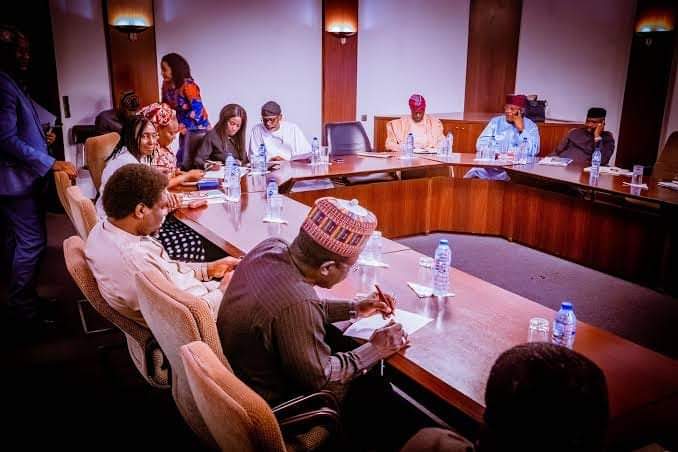President Bola Tinubu met with leaders of the Nigeria Labour Congress (NLC) and the Trade Union Congress (TUC) in Abuja on Thursday to continue discussions on establishing a new minimum wage for Nigerian workers. The meeting took place at the Aso Villa in the nation’s capital.
A top labour source informed the media that the President invited the leadership of the NLC and TUC to deliberate on the proposal for a new minimum wage. The government and private sector have proposed a figure of ₦62,000, while the Organised Labour is demanding ₦250,000.
This meeting follows President Tinubu’s Democracy Day speech on June 12, 2024, in which he announced plans to send an executive bill on the new national minimum wage to the National Assembly for passage. On June 25, the Federal Executive Council (FEC), chaired by the President, postponed deliberations on the new minimum wage to allow for further engagement with stakeholders.
Subsequently, on June 27, President Tinubu and Vice President Kassim Shettima met with the governors of the 36 states and ministers at the 141st meeting of the National Economic Council (NEC) to discuss the new minimum wage.
A Long Walk to a New Wage
Discussions on a new minimum wage for Nigerian workers have been ongoing. The Minimum Wage Act of 2019, which set the minimum wage at ₦30,000, expired in April 2024. According to the law, the minimum wage should be reviewed every five years to reflect contemporary economic conditions.
In January, President Tinubu established a Tripartite Committee to negotiate a new minimum wage. The committee includes representatives from the Organised Labour, federal and state governments, and the Organised Private Sector. Despite several meetings, the committee failed to reach an agreement on a new minimum wage, leading to an indefinite industrial action declared by labour on Monday, June 3, 2024. The strike severely disrupted operations, including the shutdown of airports, hospitals, the national grid, banks, the National Assembly, and state assembly complexes.
As negotiations continue, the outcome of these discussions will significantly impact the livelihood of workers across Nigeria and the overall economic stability of the country.
